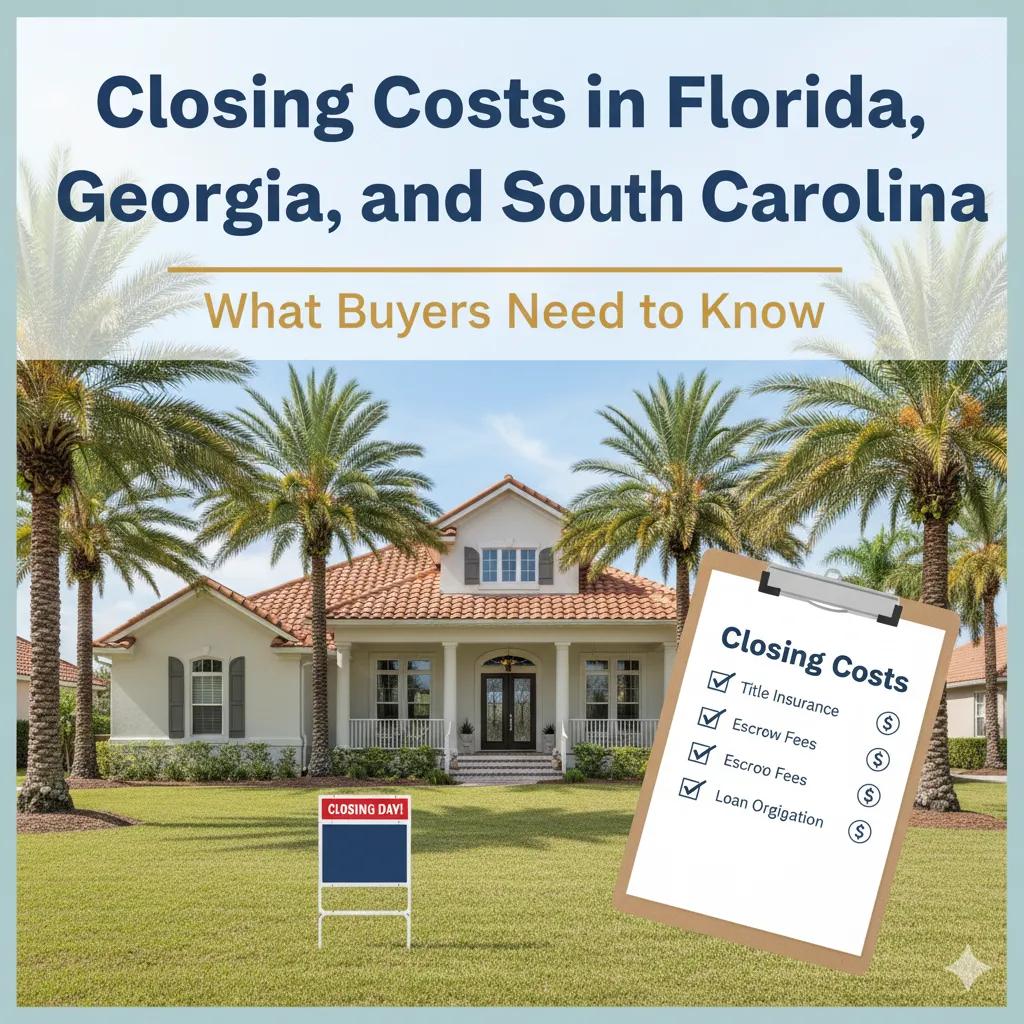
Closing Costs in Florida, Georgia, and South Carolina: What Buyers Need to Know in 2025
Planning to buy a home this year? There’s one expense that catches a lot of buyers off guard: closing costs.
Most people know they exist, but few know what they actually cover—or how much they can vary depending on where you’re buying. Let’s break it down.
What Are Closing Costs?
Closing costs are the extra fees due when you finalize your home purchase. They usually cover things like:
Loan application and origination
Credit report
Home appraisal and inspection
Property survey
Title insurance and attorney’s fees
Homeowner’s insurance
Recording and transfer taxes
Think of it like buying a car. The sticker price isn’t the whole story—you also have taxes, registration, and insurance. A home purchase works the same way.
National vs. Local: Why It Looks Different
You’ve probably seen the national rule of thumb: 2%–5% of the purchase price. But that’s only part of the picture. Your actual costs depend on:
Local taxes and fees (recording, transfer, etc.)
Service charges for attorneys and title work in your area
Insurance rates (especially important in Florida with storm risk)
That’s why a Florida buyer may pay something very different than a buyer in Georgia or South Carolina—even if the home price is the same.
A Closer Look: Florida, Georgia, South Carolina
Here’s a rough idea of what’s typical right now for a median-priced home:
StateTypical Closing CostsWhat’s Driving It?Florida$8,000–$11,000High insurance premiums + doc stamp taxesGeorgia$3,500–$5,500Moderate attorney/title fees, state transfer taxSouth Carolina$2,800–$4,500Lower median home prices, fewer transfer fees
👉 Keep in mind: These are averages. Your personal number will depend on your purchase price, loan program, and county-specific fees.
Can You Lower Closing Costs?
Yes. Here are some smart strategies buyers in FL, GA, and SC use:
Negotiate with the seller. Ask for a credit toward closing costs. In slower markets, this is common.
Shop around for insurance. Especially in Florida—where rates can swing thousands.
Check for assistance programs. First-time buyer or profession-based grants can cover part of your bill.
Pro Tip: In Florida, some sellers are now offering concessions to help cover agent commissions. That can free up cash for your closing costs.
Real Story
One of my Florida buyers last month was nervous after seeing an $8K estimate for closing costs. We reviewed the numbers line by line, negotiated $5K in seller credits, and found a better insurance policy that saved another $1,200/year. That turned an overwhelming number into something manageable—and gave them the confidence to move forward.
Key Takeaway
Closing costs aren’t one-size-fits-all. Florida, Georgia, and South Carolina each come with their own quirks, fees, and opportunities to save.
If you’re planning to buy, knowing these numbers ahead of time can help you budget smarter—and maybe even negotiate a better deal.
👉 Curious what your closing costs would look like in your city? Let’s run the numbers together → Book a free 15-minute call
Disclaimer: This content is for educational purposes only and not a commitment to lend. Interconnect Mortgage — NMLS 1720882. Check licensing at NMLS Consumer Access.
